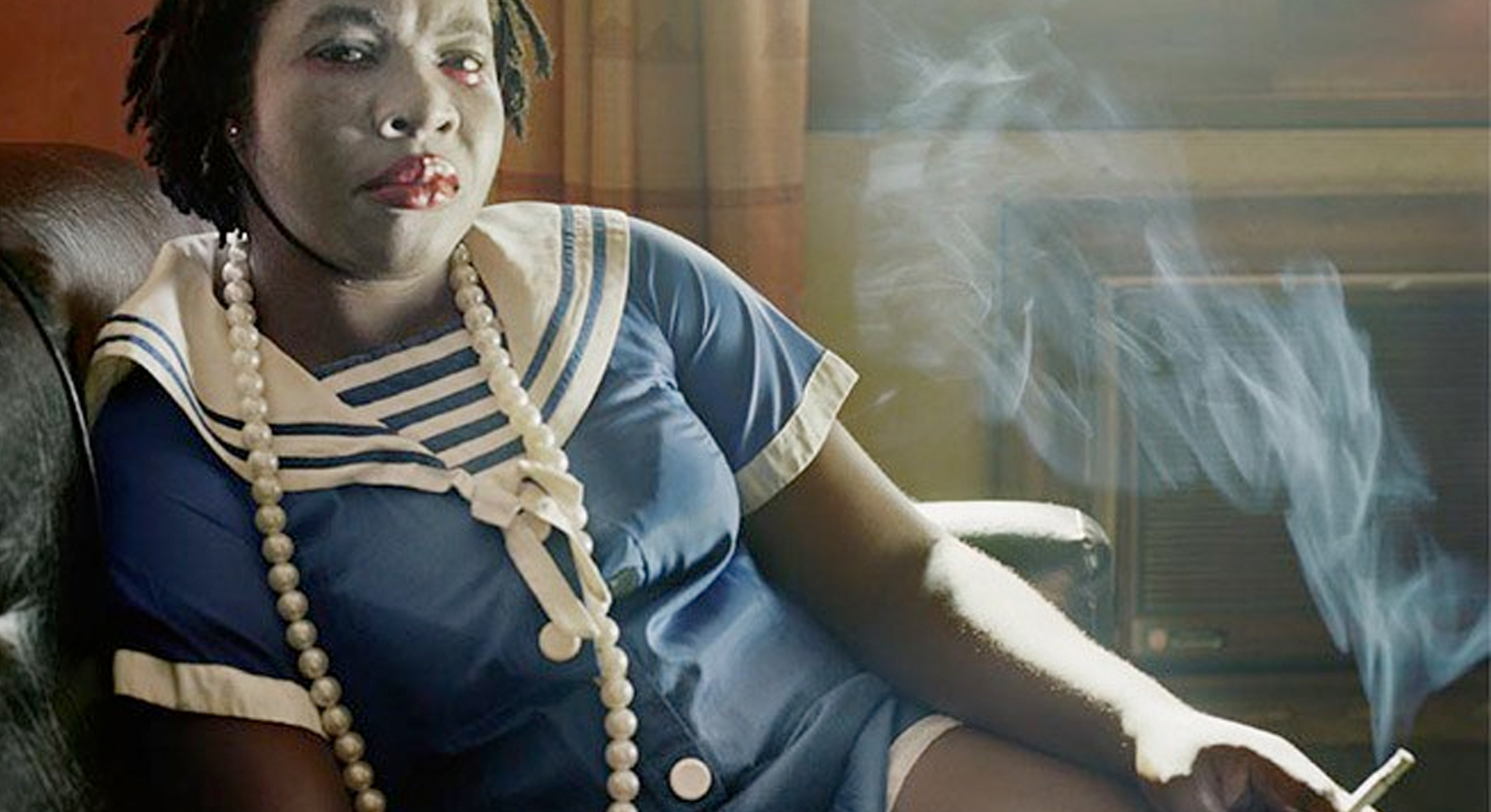After Hollywood and Bollywood, “No-llywood”
Few people around the globe are aware of the fever that gripped the Nigerian public and its diaspora in the early 1990s, with the rise of a homemade film industry reaching today 2,000 films produced per year for infinitely derisory budgets compared to those spent by the Californian production studios. 10,000 dollar budget at the best, a scenario that hardly stands up, actresses and actors who are not afraid to do too much, image quality that can sometimes be really poor and you have the quintessence of what has made the success of Nollywood: resourcefulness!
Released during the opening ceremony of the Nollywood Week that the Black(s) to the future team attended, the documentary “Jimmy Goes to Nollywood” by Rachid Dhibou and Jimmy Jean-Louis, discusses the gap between the plurality of film projects that emerge in Nigeria, and theiralmost total lack of proxy to the international stage.
For despite his prolific production capacity, international cinema professionals do not take seriously Nollywood. Yet, judging public reaction during the documentary and laughter that have traversed the room throughout the projection, the spirit of Nollywood please, moves, amuses and fascinates. So much so that it gives wings to some weak-willed who, failing to master the technique and have reasonable means to carry out their project, continue to want to tell stories that are familiar to an audience of more more fond of these stories, as alternative realities of their own daily.
The new Nollywood has arrived!
For this third edition of the festival, the team of Serge Noukoué, Shari Hammond and Nadira Shakur fed their programming a refreshing eclecticism, “which gives pride to blockbusters strong social messages” among comedies, dramas, thrillers and even, for the first time, TV series with Before 30 that is a hit in Nigeria and now a horror film with the film CJ Obasi, Ojuju.
Moreover, the organization of events such as the Africa Movie Academy Awards (AMAA), held in Lagos for 11 years, is evidence of the emergence of this popular but chiadé African cinema, having nothing to envy its predecessors in terms of scenario, images or even talent! For example, Nigerian actors and actresses, like OC Ukeje that fills the screen in Gone Too Far Ekargha director of Destiny (must see) are interplanetary stars. Their cinematic escapades are scrutinized and admired beyond the borders of Nollywood, with unprecedented success, especially from the diaspora.
MC of AMAA in 2012 and ambassador of the third edition of the Nollywood Week, Jimmy Jean-Louis was able to reap the testimonies of many actors and directors in search of credibility, which have long desired to overcome the label Nollywood. In response, noticed and remarkable participation of African-American actors to nollywoodiennes productions like Thandie Newton and Isaiah Washington has literally reversed the trend determined to shed light on an African cinema, much more than that which they were biberonnés is meaningful, it is now they who turn away from Hollywood to join the ranks of Nollywood.
“Hollywood, it still had to wait a number of years before we reach the level that we know today. Patience is called for before we see the results of today’s labor hatch “. Here’s what confided Jimmy Jean-Louis to the French newspaper Le Point Afrique few days ago, during the broadcast of his documentary at the festival. While the lack of structure as protection of this flourishing industry the Nigerian state slows down the work at arms length by most African filmmakers, things still continue to evolve in the right direction in Nollywood. When is its own category in the TV / streaming services around the globe? ASAP !
Cover photo :
Pieter Hugo, Obechukwu Nwoye, Enugu, Nigeria, 2008. From the series Nollywood © Courtesy of Stevenson Gallery, Cape Town / Yossi Milo, New York.
